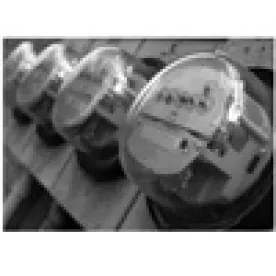At the first in a series of technical conferences, industry and government stakeholders yesterday strongly urged FERC to be proactive in helping to shape the EPA’s Clean Power Plan (“CPP”). What remains unclear, however, is precisely how the Commissioners can and will seek to influence a rulemaking over which the Commission lacks jurisdiction.
FERC is convening four technical conferences to assess potential impacts of the CPP on the nation’s electric reliability, wholesale energy markets, and energy infrastructure. The Commission has no formal role in crafting the rule. But, in opening yesterday’s Commissioner-led conference, Chairman LaFleur framed the conferences as an effort to facilitate dialogue about the CPP’s implications for the nation’s energy sector.
Following an overview of the proposed rule, the Commissioners heard from three stakeholder panels. Overall, panelists largely reiterated recommendations presented to the EPA through public comments before broadly encouraging the Commissioners to share their perspective and expertise with EPA.
Flexibility to Ensure Reliability
During the opening panel, utility representatives emphasized potential reliability and affordability issues associated with the transition to lower-carbon generation. The panelists urged the Commissioners to support mechanisms to provide greater flexibility under the CPP, including a delayed implementation timeline and a so-called “reliability safety value,” whereby an emitting generator scheduled for shut-down to meet an emission-reduction target would be allowed to remain in service if needed to maintain grid reliability. More generally, panelists urged the Commissioners to educate EPA on potential reliability concerns raised by the proposed rule.
Streamlining Infrastructure Planning and Siting
The second panel focused on the potential transmission and pipeline infrastructure demands of a CPP-driven transition to lower-carbon generation. Despite FERC rate incentives designed to spur new infrastructure, panelists described ongoing challenges to develop new projects under federal, state, and local regulations. The panel encouraged the Commissioners to work more closely with other regulators to streamline approvals and provide greater rate and licensing certainty for transmission and pipeline developers. Panelists also pressed the Commissioners to clarify how the CPP’s carbon reduction goals will be incorporated into FERC’s existing rules for transmission planning and cost allocation.
Challenges in FERC-Regulated Energy Markets
Finally, the closing panel focused less heavily on policy considerations in drafting final carbon rules and emphasized instead how to implement CPP requirements in wholesale power markets. The proposed CPP requires states to draft and carry out their own plans to achieve targeted emissions reductions. With this in mind, panelists described options to ensure market fairness in RTOs operating across multiple states. More broadly, panelists argued that well designed markets will help to address potential reliability and affordability issues under a final CPP.
Moving forward, FERC will hold three staff-led conferences to consider regional effects of the CPP:
-
February 25, 2015: Denver (Western region)
-
March 11, 2015: Washington, DC (Eastern region)
-
March 31, 2015: St. Louis (Central region)
FERC rarely weighs in publicly on another federal agency’s rulemaking process. Thus, while yesterday’s conference helped to clarify certain concerns related to the CPP, it remains unclear what action – if any – FERC may take to attempt to address these concerns.




 />i
/>i

